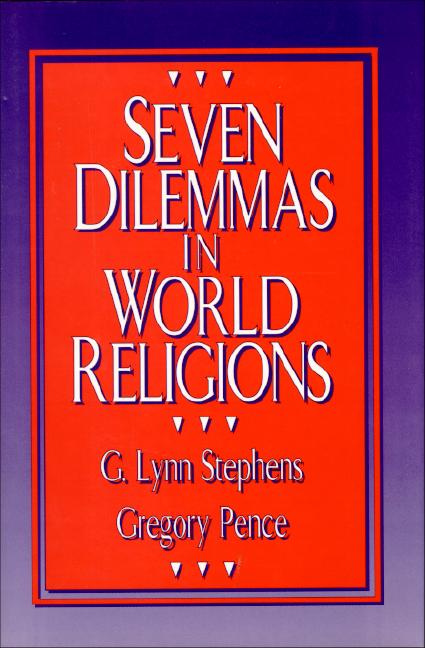Professors Lynn Stephens and Gregory Pence offer this insightful and engaging introduction to six of the world's major religions: Judaism, Christianity, Islam, Hinduism, Buddhism and Confucianism. Rather than lead us through the labyrinthian history preceding the modern-day incarnations of these six traditional religions, we are invited to view the world, if only for a few moments, as we might through the eyes of someone whose religious life is very different from our own.
By drawing our attention to the problem or "dilemma" central to the beliefs and rituals of a given tradition, the authors enable us to understand how the experiences common to all of us--birth and love, faith and community, suffering and death--can become, in the actual living of these experiences, uniquely Christian or Buddhist or Jewish. We learn about Christian moral thought as we puzzle over the mystery of Jesus' dual nature. We come to understand the idea of a "chosen people" by uncovering the tensions between ethnicity and universalism in Judaism. And we stretch our minds to comprehend the essence of life as we ponder the Buddhist paradox of soulless reincarnation.
The real treasure Stephens and Pence offer us is the knowledge that,
beneath its motley exterior, humanity yearns toward whatever truth may
yield answers to the questions burning with a similar fire in every human
heart.
G. LYNN STEPHENS is professor in the Department of Philosophy at the University of Alabama at Birmingham. He serves on the Editorial Board of Philosophy, Psychiatry, and Psychology.
GREGORY PENCE is professor in the Department of Philosophy and the School of Medicine at the University of Alabama at Birmingham. He is the author of Classic Cases in Medical Ethics.




